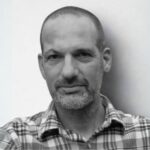By: Adam Smith
In a cultural climate dominated by extremes—either the high-earning, hustle-till-you-drop boss babe or the devoted, perfectly polished “trad wife”—Monica Yates is inviting women to take a breath and come back to center. In her notable book, Becoming HER: Straight Talk for Healing, Embodying, and Radiating as Your Most Powerful Self, Yates offers women something more nuanced: a potential for a life where they don’t have to choose one version of themselves over another.
“The middle ground isn’t viral,” Yates says. “It’s not as exciting as the woman making seven figures with ease or the one who’s baking sourdough while her husband handles everything. But many women I work with want something in between. They want to experience it all—and they can move toward achieving it.”
That “all” doesn’t mean juggling fifty plates or mastering every trend. It means wholeness—being fully expressed as a multidimensional woman. For Yates, this includes the soft nurturer, the sharp CEO, the lover, the friend, the fiery protector, and the grounded homebody. The real insight? It’s not about doing more. It’s about becoming more aligned with who you already are.
At the heart of Becoming HER is Yates’s signature H-E-R Framework™—Heal, Embody, Radiate—a three-part approach that she’s refined over years of coaching women. It’s not another self-help checklist. It’s a trauma-aware, intuitive path that addresses underlying factors that may contribute to cycles of burnout, shame, and masculine overdrive.
- Heal: “You can’t step into your feminine power if you’re carrying unresolved trauma,” Yates explains. Whether that trauma is overt (like abuse) or more subtle (like societal conditioning and generational wounding), it still has an effect on the body. “Your nervous system is the filter through which you experience everything. If you don’t feel safe, you might unintentionally hold yourself back from success, deeper relationships, or fulfillment.” That’s why the healing stage focuses on somatic methods that help women reconnect with their bodies and start breaking free from survival mode. “Most personal development is happening in the head. But 80% of the signals travel from body to brain, not the other way around.”
- Embody: Once the trauma is addressed, Yates emphasizes the importance of integration. “This is where identity upgrades happen,” she says. “People may think they’re doing the work, but they might not be truly embodying it. They still default to old patterns. Embodying means you are the healed version of yourself—you’re not pretending or performing.”
- Radiate: When the healing has been embodied, radiance begins to feel effortless. “You don’t need to use 300 tools to feel aligned anymore,” she says. “You naturally make better choices. You attract more supportive people. You stop tolerating things that drain you. It becomes who you are.” And that’s when life can start to feel more in flow.
But as Yates points out, radiance doesn’t mean perfection or constant output. In fact, one of the damaging narratives women are fed today, she argues, is that being “empowered” means doing it all alone, without help, and without rest.
“We’ve been sold this idea that softness is laziness, that asking for support is weakness, that trusting others—especially men—is unsafe,” she says. “Women are burning out trying to prove they’re worthy. They’ve outsourced their sense of success to achievement, and their nervous systems are often paying the price.”
So what’s the antidote? It starts with getting honestly clear about what you actually want, not what society told you you should want.
For many women, that means rediscovering parts of themselves they’ve suppressed in order to fit into a culturally acceptable mold. “We’ve been put in a box of ‘shoulds’ for so long,” Yates says. “Tick this box, then that one, and maybe then you’ll be enough. But real empowerment comes from breaking out of the box altogether.”
Another powerful layer of Becoming HER is its exploration of women’s relationships with men. Yates encourages her clients to look at the narratives they’ve been taught and ask: Are these mine? Or are they inherited? “One of the first steps in softening into your feminine is healing your relationship with men,” she says. “In the book, I share insights from a survey I did with men that has been transformative for many of my readers. It helped them realize that their resentment wasn’t necessarily based on reality—it was based on pain.”
And this healing isn’t just about romance—it ripples out into every corner of a woman’s life: motherhood, career, friendships, self-worth. When women feel safe, seen, and supported within themselves and their relationships, they can become more resilient. Not because they’re trying to prove anything. But because they finally feel more aligned.
In a world that glorifies extremes, Becoming HER offers a refreshing perspective. It reminds us that feminine power isn’t about fitting into a mold—it’s about embracing the full spectrum of who we are. It’s about being strong and soft, ambitious and grounded, tender and fierce.
As Yates says, “A healthy life is complex and dynamic. And when women learn to live in that beautiful, messy, powerful middle, they don’t just survive. They begin to radiate.”
Monica is an industry-leading trauma healer and embodiment coach, a New York Times notable author, and the Founder/CEO of Monica Yates Health. For the last several years, through somatic trauma healing and deep embodiment work, Monica has helped women overcome hyper-masculinity and reconnect with their feminine energy in a sustainable way, giving them lasting expansion in all areas of their lives — business, love, family, health, and fertility. More information on Monica, her workshops, and her notable book, “Becoming Her: Straight Talk for Healing, Embodying, and Radiating as Your Most Powerful Self” can be found at www.monicayateshealth.com.
Disclaimer: The views and advice presented in this article are for informational purposes. The content does not constitute professional medical, psychological, or therapeutic advice. Individuals experiencing trauma or seeking healing are encouraged to consult with a qualified healthcare provider or therapist. Always exercise personal discretion and seek appropriate professional guidance before making lifestyle or wellness changes.
Published by Jeremy S.


















